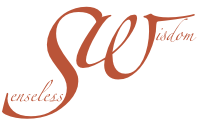I’ve just been watching two interesting TED talks by Bryan Schwartz and Dan Gilbert – yes I’m slowly going through all of them – both of which carry strong ideas about “choice”.
If you are in my parents age (born around the 1950s) and even more so if you’re part of my generation (born in the 1980’s) you probably noticed that nowadays we have plenty of choices. Not only insignificant ones like at the supermarket or in the television programmes but significant choices about our very lifes. As Schwartz says: There were times when people knew they should marry as early in life as possible and then get kids as early as possible. They only needed to choose who to marry. Today this is more complicated, you need to choose not only who to marry but when (wait until have kids, make career first, then marry, then have kids, never marry at all). Of course there were also times when you’re parents choose for you who to marry.
So we have a very increased set of important choices today including when to do what – since you can do almost anything from almost anywhere – and what to do at all. I’ve noticed this very much recently, quite a lot of the people I know start marrying and getting children while just graduating, others starting to work out a career. Both of which seem happy with their respective choices.
A second thought is explained by Gilbert who says that the happiness we get out of a certain choice we make is very much bound to what we compare it with. If you make a certain choice and even if it comes out to be the worse choice people tend to be happier with that choice. The freedom to have a choice gives us what he calls “synthetic happiness”. And as he shows it is as strong as “real” (natural) happiness. But: Freedom to choose is deadly for “synthetic” happiness. (You probably should have watched the talk by now) You can “talk yourself” into liking anything unless the choice is reversible. Then you’ll be unhappy with your choice. Nevertheless we would prefer having a choice. Obviously we need some kind of boundaries to our freedom of choice. At least we need them if we want to be happy.
Schwartz says we actually have too many choices and this leaves us paralyzed so that we in many cases can’t / don’t want to decide at all. This rings very true to me. I also think that because of the number of choices it is hard to discriminate the important choices from the profane choices from time to time. There are simply too many possible outcomes, most of which are unpredictable and equally unexpectable.
How much choice can a human mind handle? Since choice seems to be a somewhat unconscious mechanism – scientists say a choice is made up very quickly by the unconscious and justified through consciouseness afterwards, so we have an explanation why we chose this way – this seems to be a very interesting question. We don’t know yet what exactly the brain does to choose but chances are that the resources and bandwidth are limited. I don’t know what that could mean but one starts wondering.
And if you like “coincidences” – in which I don’t believe – just now I read that today’s (actually yesterday’s) subject at the Dilbert Blog by Scott Adams is (was) – you guessed it – “The Power of choice”. Go figure.
